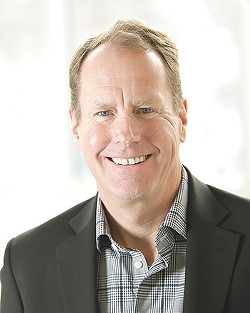The word maverick derives its origin from a cattle rancher from Texas named Samuel A. Maverick, who refused to brand his cattle with a hot iron. As a result, not having a brand became his brand. I sometimes feel this way about Spokane. Our excellent city has failed to establish a compelling brand.
Branding serves many valuable purposes. Internally it provides a "North Star" by which employees or citizens can align their objectives. Externally, a brand enables consumers to make decisions that most closely match their purchasing criteria. Leading organizations devote meaningful resources to cultivating a brand to capture a targeted market or segment.
Correctly developed, brands become a key competitive advantage and an asset with significant, tangible value. A tennis shoe emboldened with a swoosh is worth substantially more than one without a logo.
Brands can imply many different, concise attributes. What do you think of when you hear Tiffany, Nordstrom, Starbucks or Honda? To me, respectively, the phrases premium quality, outstanding customer service, unparalleled consistency and exceptional reliability come to mind. While these words may not be the exact ones you might use, I expect there is general consensus around the underlying themes.
What words do Spokanites, and those outside our region, think of when they hear "Spokane?" Near Nature, Near Perfect? Home of the Zags? Lilacs? A cheap place to do business? I expect a poll would prompt a wide variety of favorable, as well as unflattering, responses.
This is a real problem if we want to grow and prosper as a city. How can we align our actions if we don't have a common sense of who we are? How can we target and attract emerging businesses if we can't clearly describe what we offer?
Austin, Texas, is a city known for innovation. Austin advertises itself as "the live music capital of the world." A perusal of Greater Spokane Incorporated's "Advantage Spokane" website reveals a lot of spaghetti being thrown at the wall: Spokane offers a low cost of doing business, is home to 76,000 college students and is the "6th safest region from Natural Disasters." Really? That's about the least compelling stat I have ever heard. My guess is not one single person has visited Spokane based on this.
Meanwhile, with its simple, distinctive branding, Austin has been incredibly successful in attracting entrepreneurial businesses, retaining a large number of its college graduates and having the reputation for being a cool place to live.
Spokane needs to embark upon a process to identify, establish and build a differentiated brand for itself. This effort should be led by a select group of innovative representatives from Spokane-based businesses, academics and government. I would not pay a hefty sum to a third party to design a brand for the city, particularly from an agency based out of town. An outside firm will never be able to fully comprehend Spokane's uniqueness, as well as identify those who are passionately involved in our community. Moreover, they will be gone once their assignment is over.
This exercise is not overly complicated and can be completed in short order (three to six months) and at nominal cost ($25,000-$50,000). Phil Knight, founder of Nike, paid just $35 for the swoosh logo.
In establishing a brand for Spokane, I would shy away from deploying any words or images that characterize Spokane as an inexpensive place to live or do business. Alternatively, I would evaluate attributes that highlight the high quality of life available in Spokane. A high quality of life "North Star" would foster decisions that enhance lifestyles, whether they be in education, housing, health care, recreation or the arts.
Additionally, it would serve to attract successful, growing, profitable companies offering high-paying jobs, instead of those businesses that are merely seeking to save money. Entities competing for the best talent can differentiate themselves by not only offering attractive compensation, but also a high quality of life and a balanced lifestyle. These attributes are coming at a premium today, since they are declining in many large cities. The percentage of children living in San Francisco, for example, declined from 22 percent in 1970 to just 13 percent in 2010. Families are looking for new solutions, and quality-of-life concerns are high on their wish lists.
Samuel Maverick chose to not have a brand. That strategy will not work for Spokane. ♦
Tom Simpson is an entrepreneur, angel investor and advisor to startups and other businesses in the Spokane region. His column appears the first Thursday of every month; you can reach him at [email protected].
















